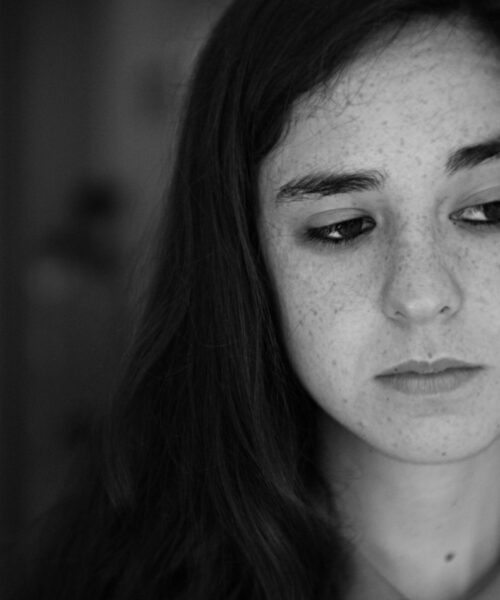ADHD | Anxiety | OCD | PTSD | Depression | Bipolar Disorder | Personality Disorder | Schizophrenia
Comprehensive Care for Your Mental Wellness
At The Equilibrium Klinic, we provide personalized, compassionate care to support your mental wellness journey. Our goal is to help you achieve balance, resilience, and improved well-being, whether you’re managing everyday stress or addressing more complex mental health challenges.
Explore the conditions we treat and learn how we can work together to promote a healthier, more balanced mind.

Attention Deficit Hyperactivity Disorder (ADHD)
ADHD is a neurodevelopmental disorder that impacts individuals across all age group; children, teenagers, and adults, by affecting their ability to focus, remain still, and regulate impulses. Key characteristics of ADHD include inattention, restlessness, and hyperactivity, which can make accomplishing daily tasks and goals difficult without appropriate care.
ADHD can lead to challenges such as reduced workplace productivity, lower academic performance, and difficulties in maintaining healthy interpersonal relationships, and overall daily functioning. Effective management of ADHD often involves behavioral therapy, lifestyle changes, and sometimes medication to reduce symptoms and enhance quality of life.
If you or a loved one exhibit signs of ADHD, consult the specialists at The Equilibrium Klinic for expert guidance and tailored treatment.
Anxiety
Anxiety is a natural emotional response to stress or perceived threats, often manifesting as feelings of worry, nervousness, or unease. While moderate anxiety can enhance performance and plays a vital role in the “fight or flight” response, excessive or persistent anxiety may disrupt daily life and indicate an anxiety disorder.
As one of the most prevalent mental health conditions, understanding and addressing anxiety is crucial in both clinical and everyday contexts. Effective management typically involves a combination of cognitive-behavioral therapy, medication, lifestyle adjustments, and coping strategies to alleviate symptoms and enhance overall well-being. Frequent or intense anxiety may indicate an anxiety disorder.
At The Equilibrium Klinic, our specialists provide expert diagnosis and treatment to help you find relief. Schedule your evaluation today.


Obsessive-Compulsive Disorder (OCD)
OCD is a mental health condition characterized by intrusive thoughts (obsessions) and repetitive behaviors (compulsions) that can disrupt daily life and cause significant distress. Obsessions often involve distressing thoughts or fears, such as contamination, a need for symmetry, or anxiety about things being “just right.” Compulsions are repetitive actions performed to alleviate the anxiety caused by obsessions, such as excessive hand washing, checking, or counting. While these actions may offer temporary relief, they often reinforce the cycle of distress.
At The Equilibrium Klinic, our experts develop highly personalized treatment plans tailored to your specific needs. We offer a range of approaches, including psychotherapy, medication management, lifestyle counseling, and alternative therapies, to help reduce the impact of OCD symptoms.
Post-traumatic stress disorder (PTSD)
PTSD is a mental health condition that can develop after exposure to a traumatic event. It can affect not only those who directly experience trauma but also those who witness it or hear about it happening to loved ones. PTSD is characterized by symptoms such as flashbacks, nightmares, intense anxiety, and intrusive thoughts about the trauma, which can disrupt daily functioning and overall well-being. PTSD is treatable, and early intervention is key to recovery.
At The Equilibrium Klinic, we may offer medications to target symptoms like depression, anxiety, and nightmares. Additionally, trauma-focused psychotherapy are often recommended to help manage emotional and physical impacts through techniques like relaxation, cognitive coping, emotional processing, and desensitization.


Depression
Depression (major depressive disorder) is a serious mood disorder that impacts your emotions, thoughts, and ability to perform everyday tasks, such as eating, sleeping, and working, and lasts for at least two weeks. It is one of the most common mental health conditions in the U.S., often influenced by genetic, biological, environmental, and psychological factors.
Depression can also occur alongside other medical conditions. Additionally, medications for physical conditions may contribute to depressive symptoms. Symptoms of depression may include persistent feelings of hopelessness or emptiness, loss of interest in activities, insomnia, oversleeping, changes in weight, feelings of worthlessness or self-blame, and severe fatigue or lack of energy.
Early intervention is crucial for effective recovery. At The Equilibrium Klinic, we typically treat depression with a combination of medications, psychotherapy, and supplements. If these treatments are not effective, we may explore electroconvulsive therapy (ECT) and other brain stimulation therapies.
Bipolar Disorder
Bipolar disorder is a mood disorder marked by alternating cycles of depression and mania. There are different types of bipolar disorder, each with it’s own distinct symptoms and characteristics. These can include periods of high energy, loss of reality, impulsive behaviors, alternating with periods of depression, feelings of worthlessness, and suicidal thoughts.
Bipolar disorder is often misdiagnosed as depression due to the prevalence of depressive episodes. Affecting about 2.8% of U.S. adults, bipolar disorder cannot be prevented, but early diagnosis and treatment can lead to a fulfilling life.
At The Equilibrium Klinic, treatment typically includes psychotherapy, medication, and lifestyle changes.


Personality Disorder
Personality disorders can disrupt your thoughts, moods, and behaviors, negatively impacting relationships and career success. These disorders affect how you interact with others, often causing distress and hindering personal and professional growth. Each personality disorder has its own distinct symptoms and characteristics. Examples include Schizoid, Schizotypal, Borderline, Paranoid, Avoidant, Obsessive-Compulsive, Narcissistic, and Antisocial personality disorders. Approximately 9% of U.S. adults experience some form of personality disorder, with Antisocial and Borderline being the most common.
At The Equilibrium Klinic, we treat personality disorders with a tailored approach, combining psychotherapy, medication, and lifestyle recommendations to best meet your needs.
Schizophrenia
Schizophrenia is a severe mental health disorder that can impact how you think, feel, and behave, often leading to difficulty in distinguishing between reality and delusion. Individuals with schizophrenia may experience symptoms such as hallucinations, delusions, disorganized thinking, and social withdrawal. These symptoms can significantly impair relationships and the ability to function in daily life, affecting personal and professional success.
Schizophrenia is a complex disorder with varying symptoms, and its onset often occurs in late adolescence or early adulthood. Around 1% of adults in the U.S. are affected by schizophrenia.
At The Equilibrium Klinic, we offer individualized treatment plans for schizophrenia, combining medication, psychotherapy, and lifestyle recommendations to help manage symptoms and improve quality of life.

